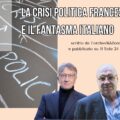Elections will be held tomorrow in the troubled Southeast Asian country. The Cambodian People’s Party has its sights on its umpteenth victory after almost 30 years in power. But the opposition is hopeful, invoking “change.”
Even the weakest supporters of Pavlovian respondent conditioning would have difficulty associating Cambodia and democracy. More than an acrobatic theory would be necessary to wed its political system with principles of parliamentarism. Indeed, the name of the country still evokes numerous memories; the consequences of the horrendous years preceding the peace accords in 1993 are extensive. Over the preceding thirty years, Cambodia suffered coups in the flesh, carpet bombings, torture, famines, and even Pol Pot’s bloody utopia. The Vietnamese invasion, the Khmer Rouge’s resistance, and diplomatic hypocrisy condemned the country to underdevelopment, to be a small player in the Cold War’s stage.
Nonetheless, international pressure and aid has imposed relatively free elections. The Cambodian People’s Party (CPP) has won all of them. The CPP has increased its seats in every election, obtaining 90 of 123 positions in the most recent. Even when the PCC did not win, it guided the government, and with the help of the military, was able to convert it in the CPP’s own image. Its leader, Hun Sen, with 28 years at the helm, is the longest governing leader in the world. The CPP’s organizational machine is powerful, undisputed in many areas, and is lubricated by the habit of rule. With a combination of propaganda, lack of scruples, and means it knows how to orient the consensus in its favor. Allegations of corruption, human rights violations, and contaminating private business with public administration do not intimidate it.
Even this time the expectation of the opposition’s assertion is palpable in the countryside and in the capitol’s offices. Eight parties are in the running, but the only one with the potential of contesting the CPP is the Cambodian National Rescue Party (CNRP), born from the fusion of the Sam Rainsy Party and the Human Rights Party. The former takes its name from the ex minister of finance, auto-exiled in order to escape judiciary accusations. Pressure from the US—leveraging assistance loans—precipitated an official pardon, allowing Sam Rainsy’s return to Cambodia amidst enormous fanfare. His partner espouses a platform based on social services for the poorest classes, demanding a raise in pensions and wages.
The coalition challenges the government, denouncing income disparities, growing inequalities, the arrogance of government officials, and their collusion with opaque business practices. It aims to mitigate the conflict between the rural populations and the ambitions of urban classes. The latter, products of development and peace, now demand more transparency, recognition of their intellectual contributions to the life of the country, and the selection of leaders based on merit rather than nepotism.
The party in power responds with the frankness of numbers and the simplicity of facts. Cambodia is in the midst of a peaceful period, the longest in recent history. The economy is growing and gradually defeating underdevelopment. The GDP is increasing by 7% annually, fueled by favorable circumstances with neighboring countries. The adhesion to the Association of Southeast Asian Nations (ASEAN) was critical for inserting the country in the circuit of investments and exports. In addition, the rapprochement to China proved profitable. After years of tensions, the countries forgot China’s support to the Khmer Rouge, and Phnom Penh’s initial pro-soviet and finally pro-Vietnamese position. Now, China is building infrastructure in Cambodia, choosing a crucial crux for development. It has also delocalized many textile industries to Cambodia, where the cost of labor is well below that in China. It’s an interesting relationship, with the potential to create income, employment and stability. Ironically, even Pol Pot’s old guerrillas (at this point elderly and pacified) have allied themselves with Hun Sen, whom they once battled fiercely.
More than likely, the hopes placed in the opposition are exaggerated. The CNRP’s supporters are sincere, but there enthusiasm will need to be deferred. They parade through Phnom Penh, frequently travelling in three on one scooter, proudly saluting each other with the sign of victory. Their slogan is simple and effective: “change!” They interpret a legitimate sense of urgency, which is most likely unavoidable. For now the power machine should be able to contain them, but the party could revive itself in five years, with increased means and malice.
















